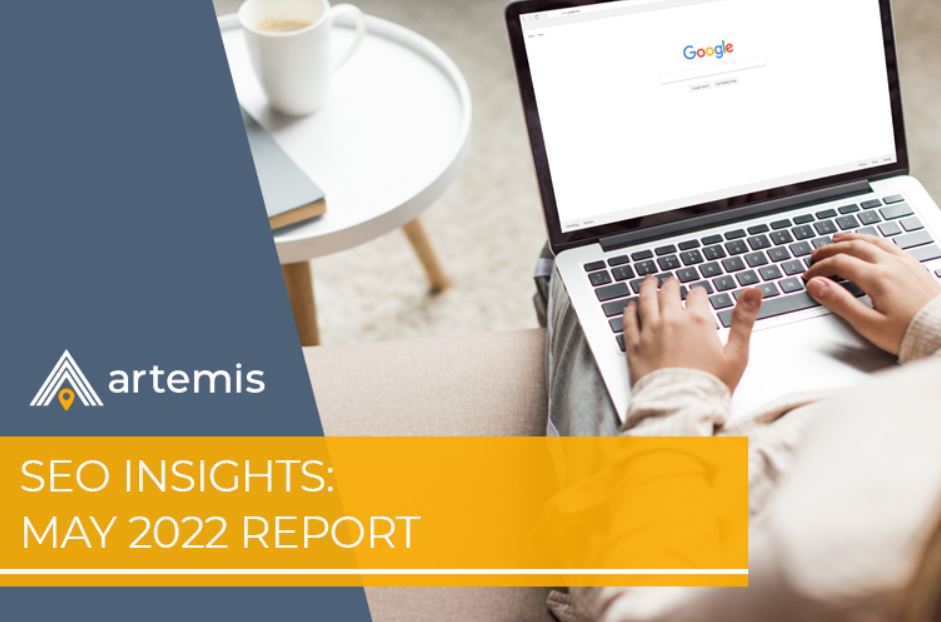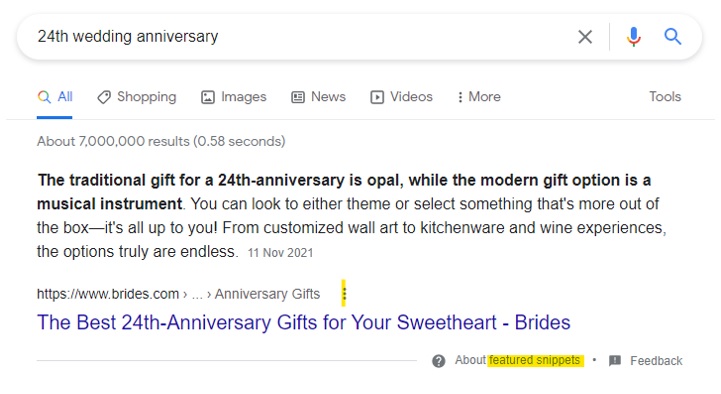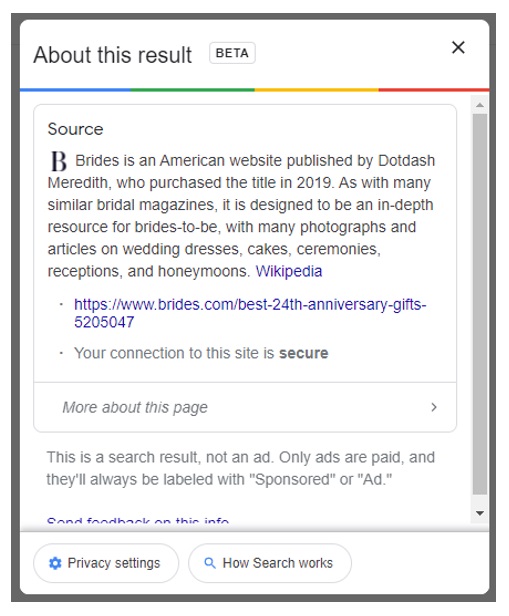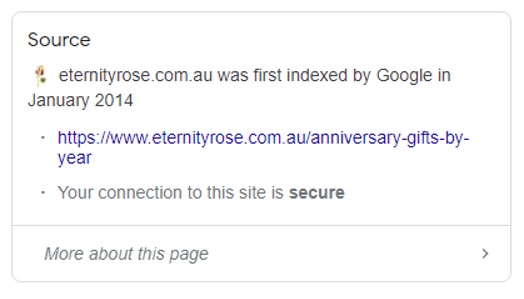SEO Insights: May 2022 Report

On the 25th of May, Google announced a new “broad core update” and it appears to be quite a significant one.
Google announces broad core updates as they begin to roll out as these do tend to result in quite a visible change in the search results across most industries. Core updates take a couple of weeks to fully roll out but already the changes in the search results are noticeable.
Core algorithm updates are designed to improve the relevancy of the search results. When a website loses ranking positions, and consequently traffic, it doesn’t mean that there is something wrong with the page or website, it just means that Google is finding that other sites (or pages) are possibly more relevant and trusted for the search query.
It’s still early days in the roll out of the update but there are already some signs of what has changed.
Featured Snippets
Following the release of the update, many SEOs took to Twitter with concerns that they had lost all of their featured snippets. It is correct that many websites have indeed lost these coveted positions.
A sitewide effect such as this has all the hallmarks of some sort of ranking penalty, but that’s unlikely to be the case. The websites which have lost their featured snippets are still ranking well, they just aren’t being elevated to the top featured position, position 0 as it’s commonly known.
What can we deduce from this?
It’s likely that these websites have possibly lost a little bit of trust with Google and so they are no longer being placed in the position of trust which is the featured snippet.
It does appear, but not in all cases, that the featured snippet is being replaced with websites which are cited mainly from Wikipedia. For example:

If you click the three dots next to the URL you see this:

You can see that the source, in this case brides.com, is known to Google through its listing in Wikipedia.
Other websites below it in the results don’t have this sort of citation and appear like this:

If you click the “More about this page” link you’ll see this message:

In other words, it hasn’t found a reliable description for this website, in this case The Eternity Rose, on another website… an authoritative website.
As mentioned above, this isn’t always the case for the featured snippet but it now seems more likely to go to a website with a source from Wikipedia.
We do need to wait for the update to finish rolling out before we can complete this assessment but it is leading us to believe that this update is heavily focused towards EAT.
What is EAT?
EAT stands for “expertise, authoritativeness, and trustworthiness”. It is referenced extensively in Google’s Search Quality Raters Guidelines. This is a document which is used internally at Google to manually rate websites and search results.
EAT is not a direct ranking factor but essentially it’s how Google may go through a process to understand if a website is an authority in a subject and if its content can be trusted. It’s the same process that a user would go through to assess a website to determine, for example, if the site is trusted enough for a user to submit their credit card details to.
In some cases the effects of EAT may be quite low, for example, if you are searching for baby names, but in critical industries such as finance and healthcare, Google has to be much more certain that the results displayed, especially the featured snippet, come from a trusted and reliable source. It cannot afford to show the wrong medical information to a user.
We will be writing an in-depth guide to EAT shortly on our blog to go into this in more detail but the key aspects of the three EAT elements are:
- Expertise – Who has written the content? What is their background? Do they have experience in this subject matter? Authorship counts.
- Authoritativeness – The reputation of a website. What are the reviews like? Are other authoritative sites talking about it? Google specifically mentions Wikipedia as a source of information about a website as a sign of authority.
- Trustworthiness – How transparent is the website and how accurate is the information on the pages? Does it have a phone number and proper contact details? Are there trusted external references to the content, i.e., inbound links from trusted sources?
It’s not over yet
It’s still a little soon to start making conclusions about the overall effects of the core update, as it hasn’t finished rolling out yet, but early signs are that it is quite EAT focused.
It’s important to reiterate that when a website loses traffic because of a core update, it doesn’t mean there’s something actually wrong with the website. What it does mean is that there needs to be an increased focus on improving EAT signals so that Google can increase its trust in the website and see it as more of a trusted authority in its industry.
We continue to work with all clients on improving EAT signals, ensuring that their websites gain trust and authoritativeness through on-page and off-page signals.
Although we mention Wikipedia as a trusted source in this article, it is very difficult to achieve a Wikipedia listing and it’s not really necessary. There are still featured snippets appearing for websites with no Wikipedia listings as Google is finding other sources and inbound links that contribute towards the overall EAT scores.
The important thing is always to focus on the user, ensure that they are seeing the trusted signals on the website, such as reviews, contact details, etc., and are backed up by high-quality, trusted inbound links. What’s good for users is good for search engines. It’s what we’ve always done for our clients and we will continue to do this on an ongoing basis to improve the EAT scores for our clients. It’s the Artemis way!

